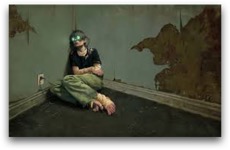BARRY SANDREW, phd - ON THE CONTROVERSY OF COLORIZING THE CLASSICS FROM THE GOLDEN
AGE OF HOLLYWOOD (PART 1)
THE GUEST
Barry
Sandrew is a neuroscientist turned visual effects innovator and entrepreneur.
He invented a process for colorizing black & white films, and another for
converting 2D movies into 3D. As a result, Barry has touched a remarkable
number of classic and modern films and TV shows - everything from It’s a
Wonderful Life to Top Gun to Transformers - through the work of the companies
he founded, which include Legend Films and Legend 3D.
Currently Barry is
involved in several AR initiatives as a founder or board member, including
ARival (AR experiences around live sports), Context Surgery (AR for surgeons),
and Magnify World (global conference on AR & VR).
THE
CONVERSATION
This
is the first of two parts of my conversation with Barry. In this part, Barry
and I talk about the lessons he learned from the public reception (and some
outrage) to colorizing old black and white movies. Barry also shares his
awakening to the potential of 3D movies, and his perspective on why 3D has
floundered in the US.
Barry
retells some wonderful stories about his interactions with the films and people
from the Golden Age of Hollywood, including Jane Russell, Terry Moore, Shirley
Temple, Ted Turner, and Frank Capra.
THE REQUEST
If you like what
you hear, please subscribe, rate, and review the podcast from your favorite
player.








